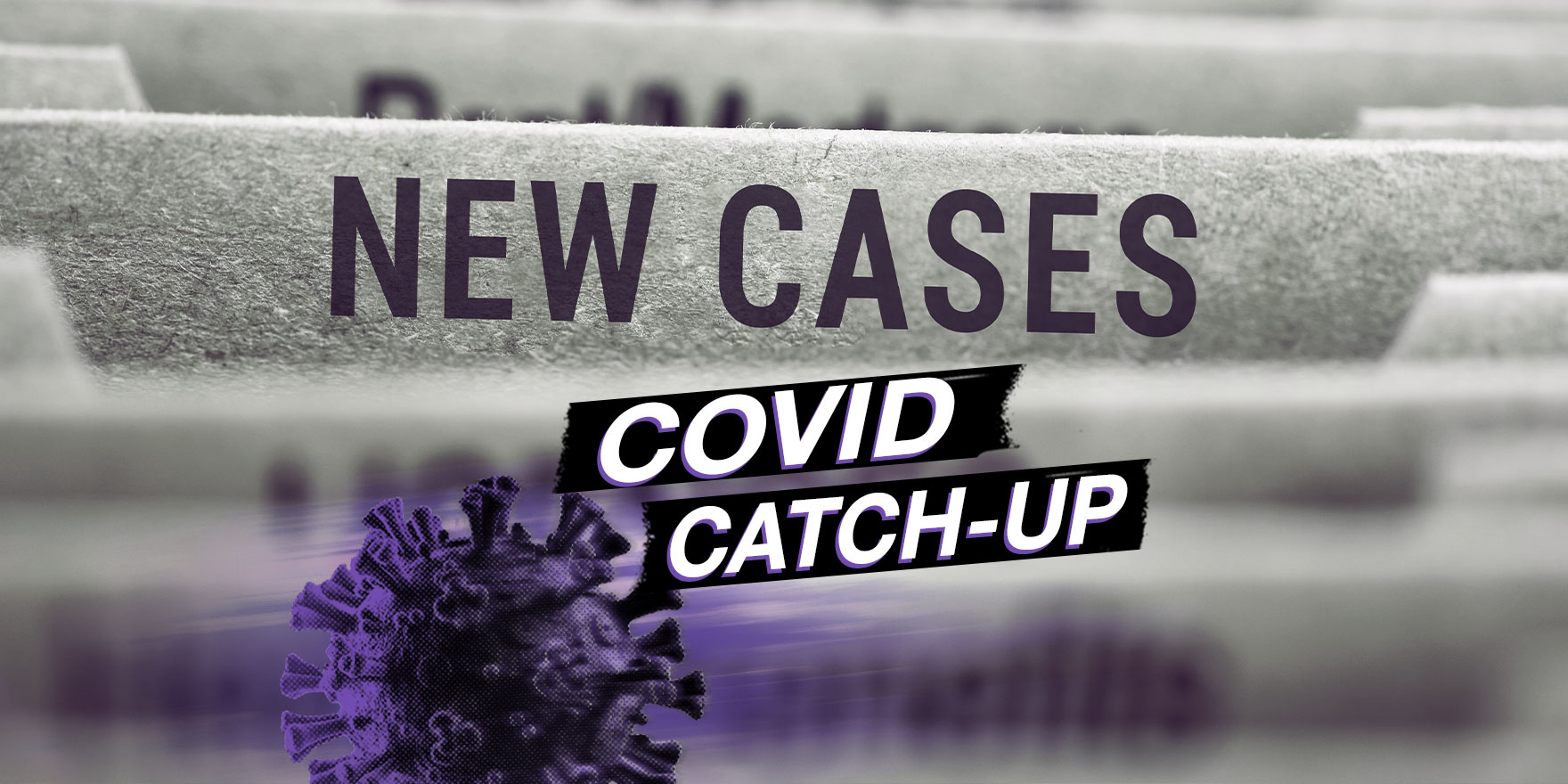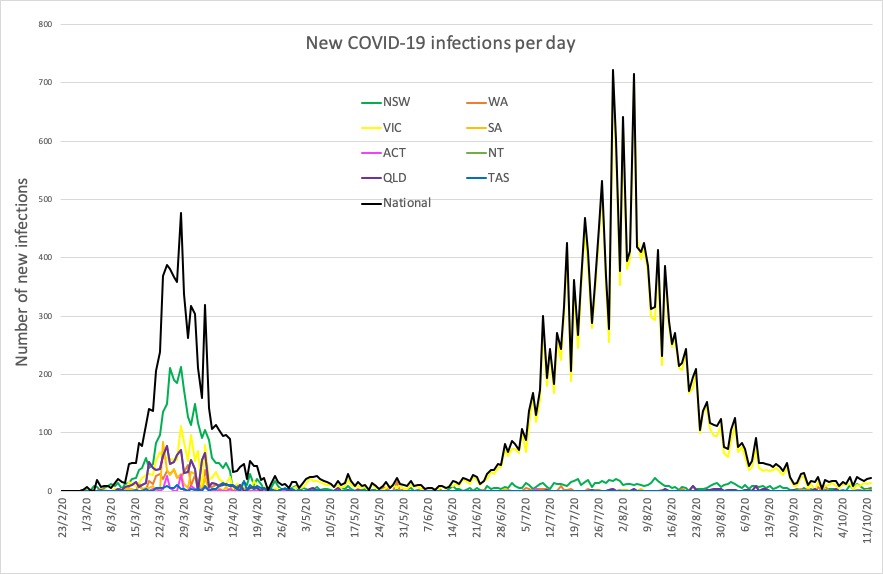And a loss of sense of smell should be a criterion for self-isolation, testing, and contact tracing, according to a new study.
Welcome to The Medical Republic’s COVID Catch-Up.
It’s the day’s COVID-19 news in one convenient post. Email bianca@biancanogrady.com with any tips, comments or feedback.
13 October
- Two south-western Sydney GPs test positive for SARS-CoV-2.
- Phase 3 COVID-19 vaccine trial paused due to unexplained illness in participant.
- Another case of COVID-19 reinfection reported, with more severe illness in second bout.
- COVID-19 antibodies found in three-quarters of individuals who experienced taste or smell loss.
- The latest confirmed COVID-19 infection numbers from around Australia.
- Two Sydney GPs have been diagnosed with COVID-19 after coming in contact with an infected patient. All staff at their clinic – A2Z Medical Clinic in Lakemba in south-west Sydney – are in isolation and being tested, and NSW Health has issued an alert for anyone who attended the clinic on the 1, 9, or 10 October.
The index patient also attended another medical clinic in Lakemba – Isra Medical practice – and NSW Health says anyone who visited that venue in the evening of Monday 5 October is considered a casual contact.
A pop-up COVID-19 testing clinic has been set up at Lakemba Uniting Church. - Another phase 3 COVID-19 vaccine trial has been paused after an unexplained illness in a study participant.
Johnson & Johnson announced today it was temporarily pausing the ENSEMBLE trial of its vaccine JNJ-78436735, which targets the SARS-CoV-2 spike protein.
Previous phase 1/2a study results suggested the vaccine generated a neutralizing antibody response, and interim safety data found no serious adverse events aside from a fever in one participant, which resolved within 12 hours.
The company has not provided any further information on the nature of the unexplained illness. - Another case of SARS-CoV-2 reinfection has been reported, and unlike previous case studies, the second infection was worse than the first.
According to a paper in Lancet Infectious Diseases, a 25-year-old man tested positive after presenting to a Nevada community testing facility in mid-April with sore throat, cough, headache, nausea, and diarrhoea. His symptoms resolved by late April and he tested negative on PCR.
Then on May 31, he went to an urgent care with more severe symptoms and five days later was hospitalised with hypoxia. Given the 48 days that had lapsed between testing negative after the first episode, then testing positive again, his two samples were sequenced and found to be genomically distinct. The man was not immunosuppressed and had no immune conditions that might have affected his response or risk of reinfection.
The study’s authors noted that of the five cases of confirmed reinfection reported so far, only one other presented with more severe infection the second time. The other three have all experienced similar severity of symptoms in both rounds of infection.
They suggested the more severe second presentation could be the result of higher levels of exposure the second time, or by reinfection with a more virulent strain.
The findings have significant implications for vaccination against COVID-19, the authors wrote. “If we have truly reported a case of reinfection, initial exposure to SARS-CoV-2 might not result in a level of immunity that is 100% protective for all individuals.” - A serological survey of individuals who self-reported loss of taste or smell has found more than three-quarters have antibodies against SARS-CoV-2, according to a paper published in PLOS Medicine.
UK researchers recruited via four primary care centres in London by sending a text message to all patients registered at the centres, asking if they had noticed their sense of smell or taste being reduced in the previous month.
Of the 567 individuals who then underwent a SARS-CoV-2 antibody test, just over 77% were found to have antibodies against the virus.
Four out of five respondents experienced loss of both smell and taste, nearly 70% reported complete smell loss, and just over 47% reported complete loss of taste.
Even after adjusting for sex, age, ethnicity and smoking status, researchers calculated that those who lost their sense of smell alone were nearly three times more likely to have SARS-CoV-2 antibodies than those who experienced loss of taste alone. Those who lost both their sense of taste and smell were four times more likely to have antibodies than those who only lost their sense of taste.
“Acute loss of sense of smell needs to be considered globally as a criterion for self-isolation, testing, and contact tracing in order to contain the spread of COVID-19,” the authors wrote. - Here are the latest confirmed COVID-19 infection figures from around Australia to 9pm Monday:
National – 27,286, with 898 deaths
ACT – 113 (0)
NSW – 4283 (6)
NT – 33 (0)
QLD – 1161 (0)
SA – 473 (0)
TAS – 230 (0)
VIC – 20,295 (15)
WA – 696 (2)



